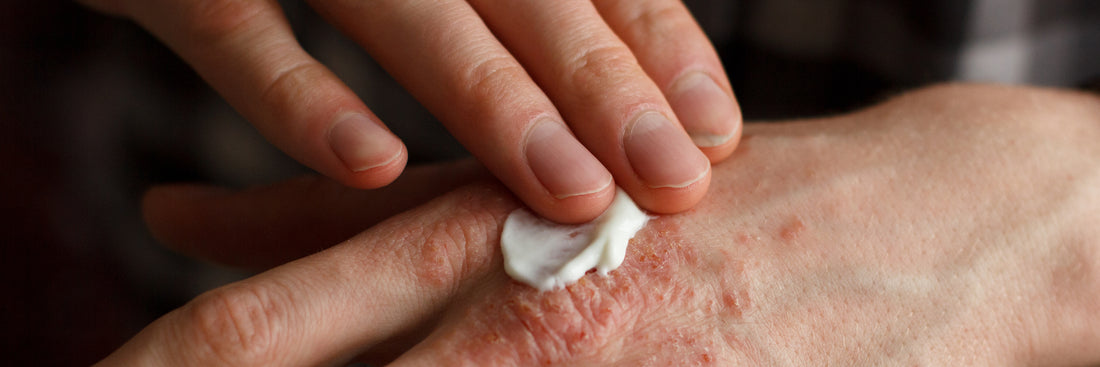
how to treat eczema?
Share
Eczema can be characterized by itchy skin, congestive red patches on the skin and cutaneous rashes. We still don’t really know what causes eczema. However, you can read more about the types of eczema and how you are able to treat it and reduce symptoms and potential periods of eczema.
The two most common types of eczema:
- Atopic eczema: chronic disease originating from genetics. The symptoms generally include dry skin, making it prone to itchiness and spurts of red rashes. The eczema is followed by periods of remission until symptoms re-appear. In most cases, atopic eczema develops during childhood and disappears at adult age. Atopic eczema is not contagious. You do not ‘catch’ it from someone else
- Contact eczema: appears after the skin contacts potentially allergic (for example nickel) or irritant (for example sodium lauryl sulfate) substances. Symptoms are the typical red rashes that irritate the skin. After contact with the potential substance, a few days may have passed. As such, it is imperative that you introspect what may have caused your eczema.
Treatment for Atopic eczema
The first step to have an impact on your eczema is hygiene. Taking on good habits in the shower or the bath to hydrate the skin correctly and regularly is essential to repair the skin and delay the next eczema period.
It is advisable to use gentle washes designed for eczema prone skin as harsh soap or washes can exacerbate atopic eczema.
Moisturising creams here are your best friends as they help repair skin and restores its protection barrier. Moisturing creams combining large loads of humectants (glycerol) and moisturising actives (mineral oil) has been proven effective at calming and controlling atopic eczema.
Treatment for contact eczema
The most important here is to find the allergic trigger of the contact eczema.
One way is to identify the culprit by correlation, determining probably allergens by linking eczema crisis to new ingredients or situations (cat, shrimps, jewelry, fabric...)
Another way is to consult a specialist to conduct allergic tests to determine the allergen that causes the eczema.
Once identified, the substance triggering eczema must be avoided to avoid repeat.
